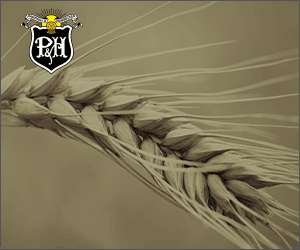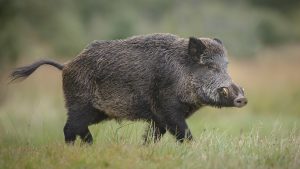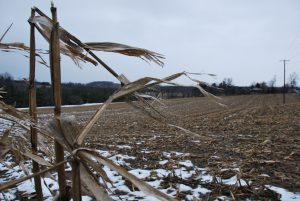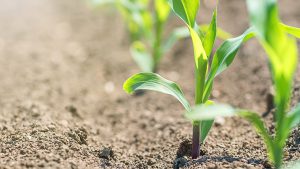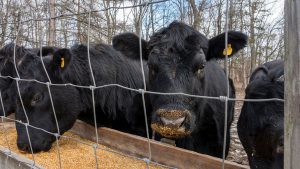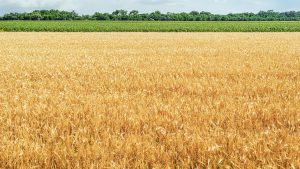BREXIT
THE IMPACT ON ONTARIO GRAIN
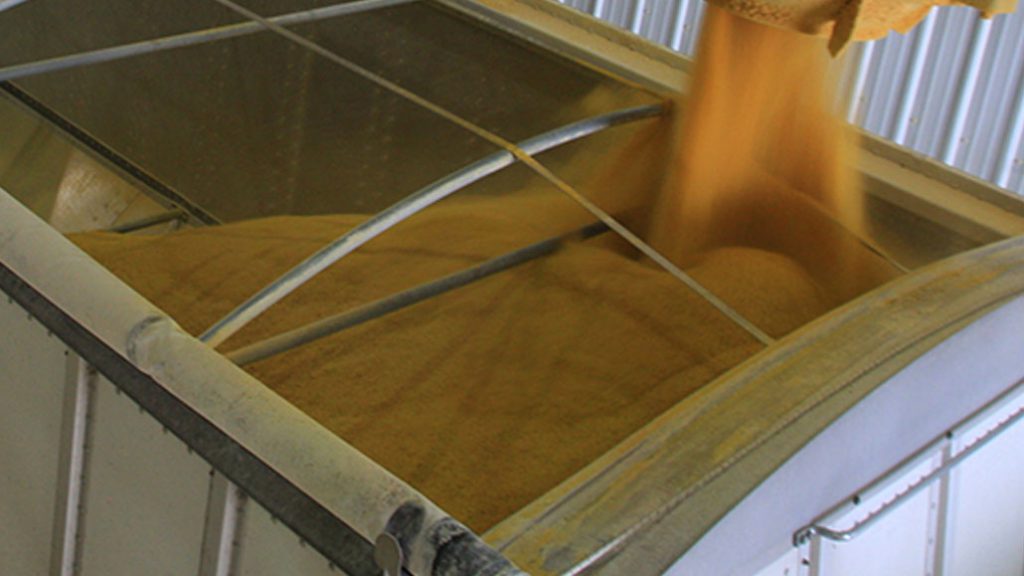
BREXIT — THE TERM heard by many over the past four years is used to describe the United Kingdom’s (UK) departure from the European Union (EU). It represents the most important constitutional change the UK has seen since it joined the European Economic Community, now known as the EU, in 1973. It also represents the first time the EU has lost a member.
The departure was the result of decades of political tension between the UK and the EU that was reinforced in recent years by a rise in nationalist sentiment, particularly in England, along with continued concerns over the recovery of the economy from the 2008 financial crisis.
One June 23, 2016 UK citizens took to the polls with 52 per cent voting in favour of leaving the EU. Those who were pro BREXIT felt that the UK would thrive more as an independent nation. Those who voted to stay worried about the impacts it would have on trade, commerce, border crossings, and more.
OUTCOMES
Four years later, everyone is still trying to determine the true impact BREXIT will have. On January 31, 2020 the UK officially left the EU and immediately went into an 11-month transition period. Under this period, the UK will continue to follow all of the EU’s rules and its trading relationship will remain the same; however, the UK has lost its membership in EU political institutions including the European Parliament and European Commission. It has also lost all of its voting rights.
The transition period allows for three possible outcomes to occur:
- The UK and the EU agree to a free trade agreement.
- The UK and the EU do not agree to a free trade agreement forcing trade between the two regions to fall under World Trade Organization (WTO) rules until an agreement can be made.
- The transition period is extended by 12 or 24 months.
Despite the additional uncertainties created by the global COVID-19 pandemic, the two sides have agreed to not prolong the transition period. This means that a free trade agreement must be in place by the end of the year or UK goods will receive tariffs trading into the EU and border checks will be put in place at border crossings.
After four rounds of negotiations, discussions seem to be at a stalemate. The EU is seeking one comprehensive agreement that would cover everything, while the UK has been seeking a simpler deal with separate agreements on other matters. Both sides have over-arching political objectives that make it challenging to find common ground. The UK wants to ensure its European ties do not compromise its new independence and the EU wants to show that it is better to be inside the block then outside, or it risks losing other members.
ONTARIO TRADE
What does all of this mean for Ontario grain?
The United Kingdom is still a relatively small market for Ontario grain but has become more important during the past three years due to the signing of the Canada-European Union Comprehensive Economic and Trade Agreement (CETA). This has removed tariffs on Canadian corn and opened up new market opportunities. In the 2018 – 2019 marketing year, 220,000 MT of Ontario corn was exported to the UK. The market presents great opportunities for Canadian soybeans as well. Previously a decent sized market with 200,000 – 300,000 MT of commodity soybeans exported annually, we have seen this volume drop to zero over the past five years. This is partially due to the shift in Canadian soybeans going to China but also as a result of the increasing pressures from the United States and South America.
Logistically, the UK is one of the closest export markets for Ontario grain. It is a market that is seeing growth in its livestock sector but continues to rely on imported grain to meet its protein needs, especially high protein as found in soybeans.
During the transition period, all obligations under CETA will still apply in the UK. This allows Canadian commodities to still receive the same duty-free access as was agreed to in CETA. However, this will end on December 31, 2020 unless a bilateral agreement can be reached.
Canada is currently in discussions with the UK on a bilateral trade agreement and according to trade commissioners posted in the UK, Canada is at an advantage to the U.S. as CETA allows for a template to already be in place accelerating the discussions.
Even with this, many felt it was ambitious to think that a bilateral agreement could be in place by the end of the year. Then COVID-19 hit and discussions came to a halt. While both the UK and Canada have agreed to work with one another, there are no timelines in place and no schedule for discussions to pick back up. With only three months left until the end of the year it is seems more and more likely that an agreement will not be in place. If this is the case, Canada — UK trade would continue under the terms of the WTO, however, the duty-free access Canadian commodities currently receive would be removed.
LOST VOICE
The impact of BREXIT on Ontario grain is not only felt with the exporting of grain. The UK was also a large voice within the EU for modern farming, taking a science and evidence-based approach to decisions. This often led to voting in favour of new biotechnology traits and reregistration of key input products. Their departure from the EU could give more power to the socialist countries influenced by popular opinion and not necessarily science. What impact this will have is yet to been seen but could include continued delays or outright rejections of new biotechnology traits, changes in the maximum residue levels allowed on key pesticides and a push towards more organic farming.
The UK represents large market opportunities for Ontario grain and Grain Farmers of Ontario continues to work with our national partners along with Agriculture and Agri-Food Canada on advocating for the need for a bilateral agreement to be put in place. We also continue to push for the EU to take a science and evidence-based approach to agriculture.
This article includes analyses from Grain Farmers of Ontario’s Market Development department.
Nicole Mackellar is the manager of Market Development for Grain Farmers of Ontario. •


